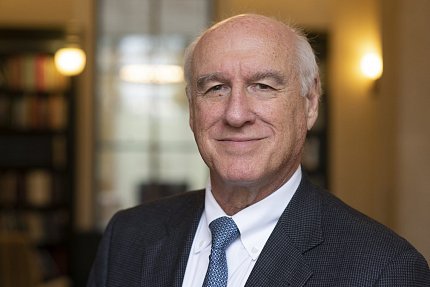Summit Focuses on Anti-SARS-CoV-2 Antibody Treatment, Prevention

What is the current state of Covid-19 antibody treatment and prevention strategies? What have we learned since the start of the Covid-19 pandemic, and what are future directions for further anti-SARS-CoV-2 antibody research? The recent Summit on Anti-SARS-CoV-2 Antibodies for Treatment and Prevention of Covid-19—Lessons Learned and Remaining Questions—identified key unanswered scientific questions to catalyze antibody clinical development and implementation. It was sponsored by the Office of the Director and NIAID.
There are several antibody therapies in use or under study—convalescent plasma, monoclonal and polyclonal antibody products and hyperimmune globulin—but several monoclonal antibodies (mAbs) have proven so far to be the most successful in certain clinical scenarios.
Drug companies including Lilly, VIR/GSK and Regeneron have developed mAb treatments such as bamlanivimab, etesevimab and others. Some of these mAbs were tested in human clinical trials as early as May 2020.
Recently, viral variants have started to develop resistance to certain monoclonals (such as bamlanivimab), but other monoclonals, as well as combinations of several monoclonals are still effective. FDA recently revoked the emergency use authorization (EUA) for bamlanivimab and it is no longer distributed in the U.S.

Dr. Myron S. Cohen of UNC-Chapel Hill presented an overview of the mAbs used for Covid-19 prevention as they could offer immediate protection for unvaccinated individuals exposed to the virus or in high-risk settings. There are currently mAbs in every phase of development, and, because they are most beneficial when administered within 7 days of symptom onset, there is particular emphasis on ones that may be used in outpatient settings.
There are multiple animal models currently used for testing Covid-19 therapeutic and prevention candidates. These models are used to investigate how SARS-CoV-2, the virus that causes Covid-19, initiates infection, replicates and causes disease in the host. Dr. Ralph Baric of UNC-Chapel Hill provided a summary of studies using a variety of animal models that have been developed since the pandemic was initially reported, as well as proposed questions that researchers will target next. Animal models could be useful in modeling long Covid and other conditions that linger after acute infection.
“We know a lot more than we did at this time last year,” commented Dr. Connie Schmaljohn, director of the NIAID Integrated Research Facility at Fort Detrick, “but we still have a long way to go” in our understanding of SARS-CoV-2 and Covid-19.
Dr. Katharine Bar of the University of Pennsylvania and a panel of experts discussed some of the challenges associated with antibody administration. One major challenge for mAb use, Bar says, is “the timely identification of eligible Covid-19 patients and linkage of them to a facility that can either refer or prescribe these antibodies.”

Clinicians and researchers on the panel recommended linking testing to treatment by providing both in the same facilities so that patients and health care providers could readily find antibody therapies. Monoclonals may also be a viable alternative to vaccination for immunocompromised or immunosuppressed individuals, who may be unable to be vaccinated or did not have a sufficient immune response to Covid-19 vaccination.
Among take-home summit conclusions:
- Several anti-SARS-CoV-2 mAbs have been authorized by the FDA under EUA, as safe and effective in preventing hospitalizations and deaths.
- Anti-SARS-CoV-2 mAbs are most effective when administered early in the course of the disease but are vulnerable to virus mutation (variants) and may be more effective when combined with other mAbs.
- Further research on anti-SARS-CoV-2 antibodies also may be useful for developing treatments for other SARS coronaviruses.
As Dr. Skip Virgin of Vir Biotechnology Inc. reminded viewers, “We should look at this pandemic with an eye to the future, because it may not be the last one.”
NIH director Dr. Francis Collins noted that presentations and discussions at the summit will inform future directions in this important field.
The entire summit can be viewed at https://videocast.nih.gov/watch=42078.
